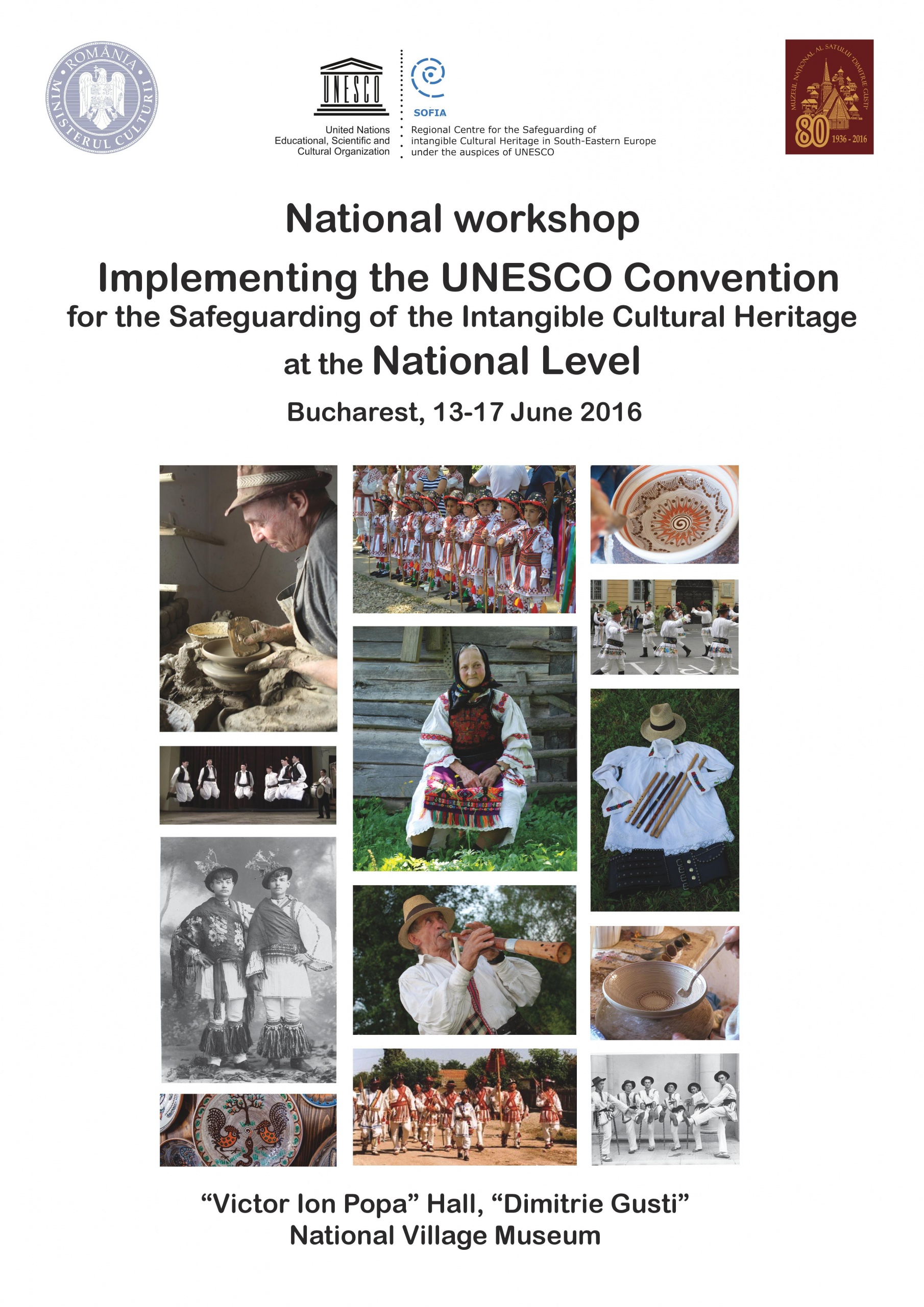10th Annual Meeting of the South-East European Experts Network on Intangible Cultural Heritage “Intangible Cultural Heritage and World Heritage: synergies and coordination between the UNESCO 2003 and 1972 Conventions” Brac, Croatia, 14-15 June 2016
12/06/2016
A workshop on “Implementing the UNESCO Convention for the Safeguarding of the Intangible Cultural Heritage at the National Level” was held on 13-17 June in Bucharest, Romania
30/06/2016On 14-15 June 2016 in Brac, Croatia was held the 10th Annual Meeting of the South-East European Experts Network on Intangible Cultural Heritage “Intangible Cultural Heritage and World Heritage: synergies and coordination between the UNESCO 2003 and 1972 Conventions”
On 14 to 15 June 2016 in Brac was held the 10th Annual Meeting of the Network of Experts on Intangible Cultural Heritage in Southeastern Europe on “Intangible Cultural Heritage and World Heritage: interaction and coordination between the UNESCO conventions of 2003 and 1972. This meeting was organized by the Regional Bureau for Science and Culture in Europe, the Regional Centre for the Safeguarding of intangible cultural heritage in south-Eastern Europe under the auspices of UNESCO, the ministry of Culture of Republic of Croatia and the Croatian National Commission for UNESCO.
The topics of the discussion were summarized in two main directions: “Implementing the UNESCO Convention for the Safeguarding of Intangible Cultural Heritage: progress, experiences and challenges” and “The UNESCO 1972 and 2003 Conventions: convergences and coordination”. The participants were experts from the Ministry of Culture and representatives of other relevant institutions of Albania, Bosnia and Herzegovina, Bulgaria, Croatia, Cyprus, Italy, Greece, Montenegro, Moldova, Romania, Serbia, Slovenia, the former Yugoslav Republic of Macedonia and Türkiye.
During the first session the participants had the opportunity to make presentations on key topics, achievements and challenges in implementing the Convention 2003 in their countries, in the period 2015-2016. During the second session were given the opportunity to examine in more details the commonalities and differences between the two conventions and the experience of countries in the coordination and implementation at the local level. Also, during the second day the participants had the opportunity to give presentations relating to fundamental policies, mechanisms of cooperation among the institutions in the implementation of the Conventions.
Meeting agenda can be viewed here.

